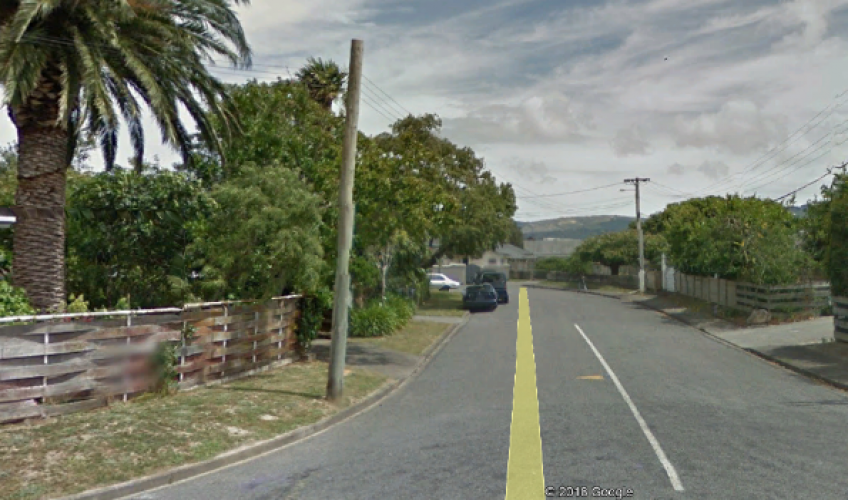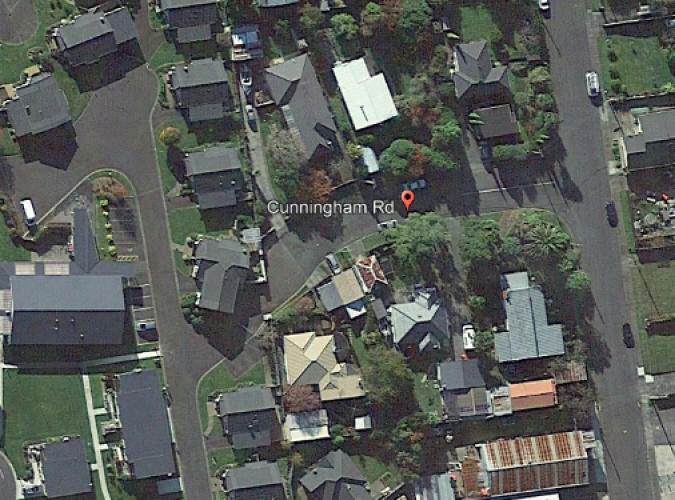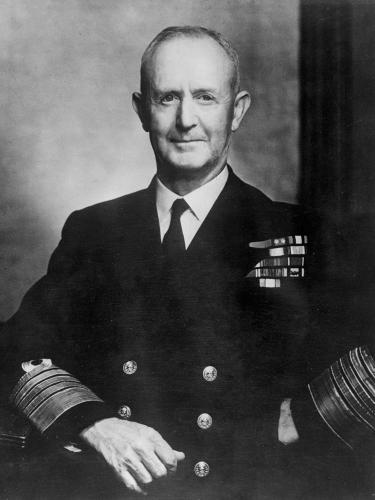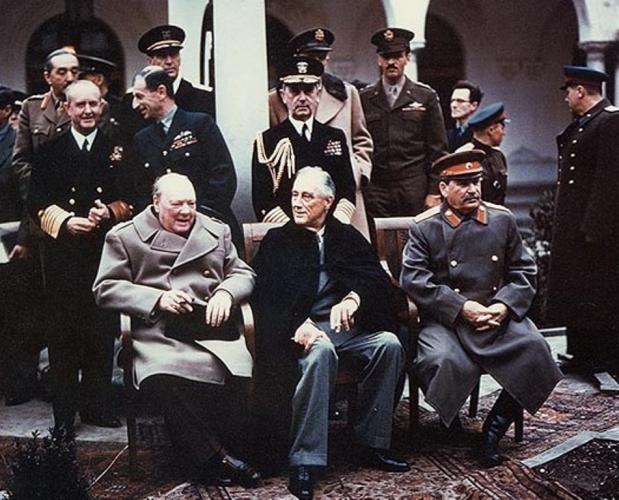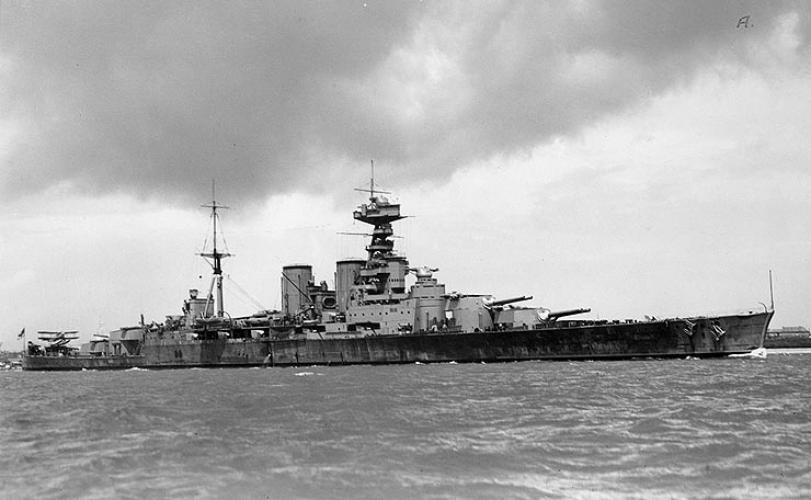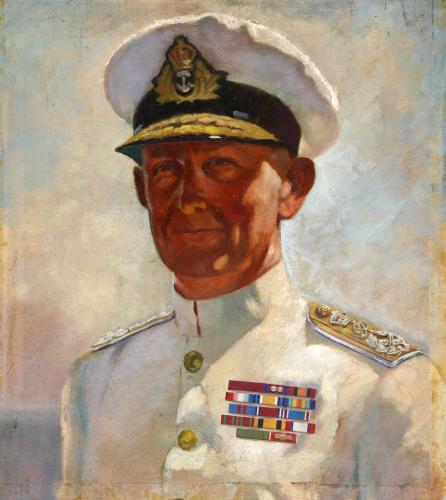177 Cunningham Road Upper Hutt, street view 2018
Reason for the name
There are three streets in an Upper Hutt industrial area named after World War 2 senior leaders; Montgomery Crescent, Mountbatten Grove and Cunningham Road. These three British senior Officers were involved with New Zealand forces throughout the war. Cunningham Road was named after Admiral of the Fleet Andrew Browne Cunningham, 1st Viscount Cunningham of Hyndhope, KT, GCB, OM, DSO & Two Bars (7 January 1883 – 12 June 1963) was a senior officer of the Royal Navy during the Second World War. He was widely known by his nickname, "ABC".
Cunningham was born in Rathmines in the south side of Dublin on 7 January 1883. After starting his schooling in Dublin and Edinburgh, he enrolled at Stubbington House School, at the age of ten, beginning his association with the Royal Navy. After passing out of Britannia Royal Naval College, Dartmouth, in 1898, he progressed rapidly in rank. He commanded a destroyer during the First World War and through most of the interwar period. He was awarded the Distinguished Service Order and two Bars, for his performance during this time, specifically for his actions in the Dardanelles and in the Baltics.
In the Second World War, as Commander-in-Chief, Mediterranean Fleet, Cunningham led British naval forces to victory in several critical Mediterranean naval battles. These included the attack on Taranto in 1940, the first completely all-aircraft naval attack in history,[2] and the Battle of Cape Matapan in 1941. Cunningham controlled the defence of the Mediterranean supply lines through Alexandria, Gibraltar, and the key chokepoint of Malta. He also directed naval support for the various major Allied landings in the Western Mediterranean littoral. In 1943, Cunningham was promoted to First Sea Lord, the professional head of the Royal Navy, a position he held until his retirement in 1946. He was ennobled as Baron Cunningham of Hyndhope in 1945 and made Viscount Cunningham of Hyndhope the following year. After his retirement, Cunningham enjoyed several ceremonial positions, including Lord High Steward at the coronation of Queen Elizabeth II in 1953. He died on 12 June 1963, aged 80.
Author: Poppy Places Trust
Second World War
Cunningham described the command of the Mediterranean Fleet as "The finest command the Royal Navy has to offer" and he remarked in his memoirs that "I probably knew the Mediterranean as well as any Naval Officer of my generation". Cunningham was made Commander-in-Chief, Mediterranean, hoisting his flag in HMS Warspite on 6 June 1939, one day after arriving in Alexandria on 5 June 1939. As Commander-in-Chief, Cunningham's main concern was for the safety of convoys heading for Egypt and Malta. These convoys were highly significant in that they were desperately needed to keep Malta, a small British colony and naval base, in the war. Malta was a strategic strongpoint and Cunningham fully appreciated this.[9] Cunningham believed that the main threat to British Sea Power in the Mediterranean would come from the Italian Fleet. As such Cunningham had his fleet at a heightened state of readiness, so that when Italy did choose to enter into hostilities, then the British Fleet would be ready.
Battle of Crete (May 1941)
On the morning of 20 May 1941, Nazi Germany launched an airborne invasion of Crete, under the code-name Unternehmen Merkur (Operation Mercury). Despite initial heavy casualties, Maleme airfield in western Crete fell to the Germans and enabled them to fly in heavy reinforcements and overwhelm the Allied forces.
After a week of heavy fighting, British commanders decided that the situation was hopeless and ordered a withdrawal from Sfakia. During the next four nights, 16,000 troops were evacuated to Egypt by ships (including HMS Ajax of Battle of the River Plate fame). A smaller number of ships were to withdraw troops on a separate mission from Heraklion, but these ships were attacked en route by Luftwaffe dive bombers. Without air cover, Cunningham's ships suffered serious losses. Cunningham was determined, though, that the "navy must not let the army down", and when army generals feared he would lose too many ships, Cunningham famously said,
It takes the Navy three years to build a ship. It will take three hundred years to build a new tradition. The evacuation will continue.
The "never say die" attitude of Cunningham and the men under his command meant that of 22,000 men on Crete, 16,500 were rescued but at the loss of three cruisers and six destroyers. Fifteen other major warships were damaged.
Cunningham became a Knight Grand Cross of the Order of the Bath (GCB), "in recognition of the recent successful combined operations in the Middle East", in March 1941[46] and was created a baronet, of Bishop's Waltham in the County of Southampton, in July 1942. From late 1942 to early 1943, he served under General Dwight D. Eisenhower, who made him Naval Commander, Allied Expeditionary Force. In this role Cunningham commanded the large fleet that covered the Anglo-American landings in North Africa (Operation Torch). General Eisenhower said of him in his diary:
Admiral Sir Andrew Browne Cunningham. He remains in my opinion at the top of my subordinates in absolute selflessness, energy, devotion to duty, knowledge of his task, and in understanding of the requirements of allied operations. My opinions as to his superior qualifications have never wavered for a second.
On 21 January 1943, Cunningham was promoted to Admiral of the Fleet. February 1943 saw him return to his post as Commander-in-Chief, Mediterranean Fleet. Three months later, when Axis forces in North Africa were on the verge of surrender, he ordered that none should be allowed to escape. Entirely in keeping with his fiery character he signalled the fleet "Sink, burn and destroy: Let nothing pass". He oversaw the naval forces used in the joint Anglo-American amphibious invasions of Sicily, during Operation Husky, Operation Baytown and Operation Avalanche. On the morning of 11 September 1943, Cunningham was present at Malta when the Italian Fleet surrendered. Cunningham informed the Admiralty with a telegram; "Be pleased to inform their Lordships that the Italian battle fleet now lies at anchor under the guns of the fortress of Malta."
In October 1943, Cunningham became First Sea Lord and Chief of the Naval Staff, after the death of Sir Dudley Pound. This promotion meant that he had to relinquish his coveted post of Commander-in-Chief, Mediterranean, recommending his namesake Admiral John H. D. Cunningham as his successor. In the position of First Sea Lord, and as a member of the Chiefs of Staff committee, Cunningham was responsible for the overall strategic direction of the navy for the remainder of the war. He attended the major conferences at Cairo, Tehran, Yalta and Potsdam, at which the Allies discussed future strategy, including the invasion of Normandy and the deployment of a British fleet to the Pacific Ocean.
While the port of Antwerp was vital for the Allies after D-Day, Admirals Cunningham and Ramsay warned SHAEF and Montgomery that the port was of no use while the Germans held the approaches. But Montgomery postponed the Battle of the Scheldt, and the delay in opening the port was a grave blow to the Allied build-up before winter approached.
Throughout this time Cunningham and his wife entertained family and friends, including his own great nephew, Jock Slater, in their extensive gardens. Cunningham died in London on 12 June 1963, and was buried at sea off Portsmouth. There were no children from his marriage and his titles consequently became extinct on his death.


